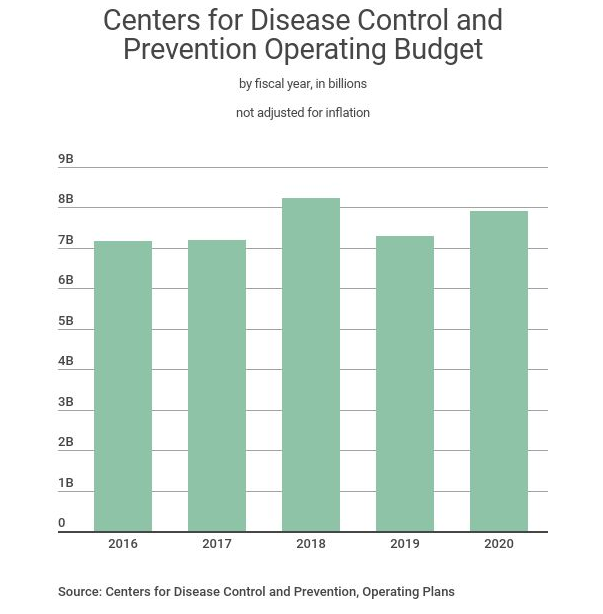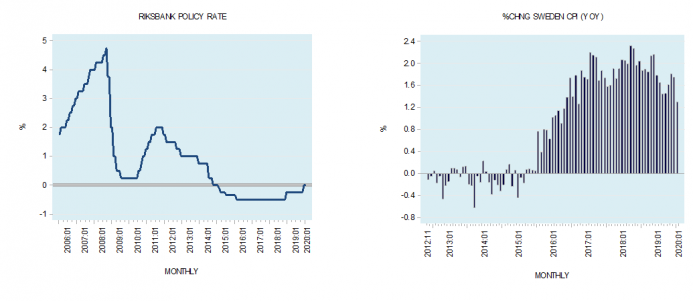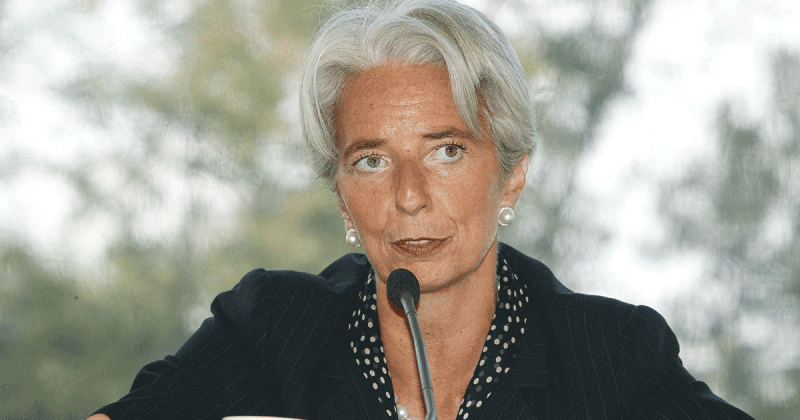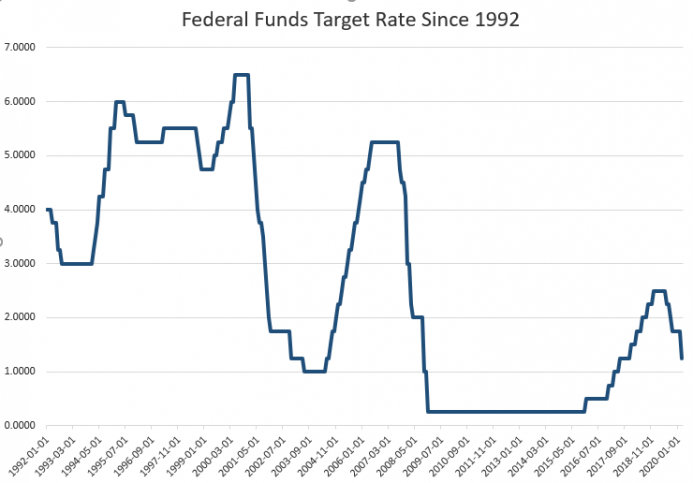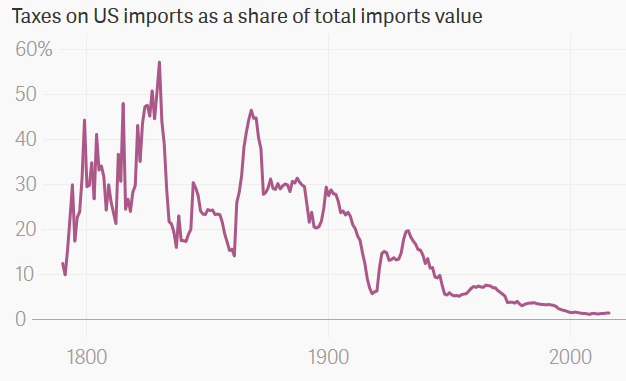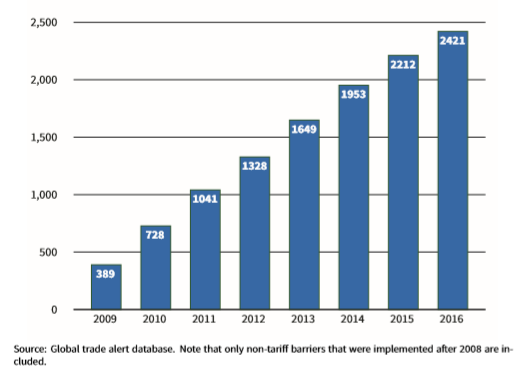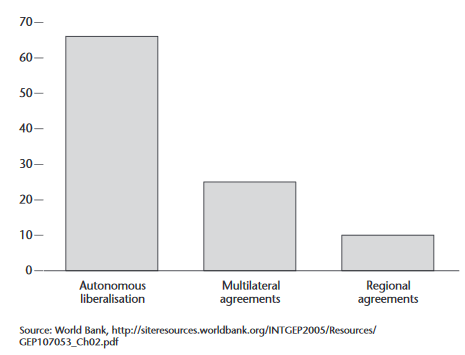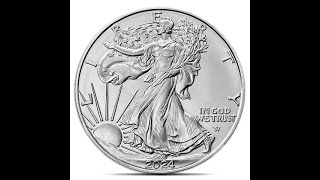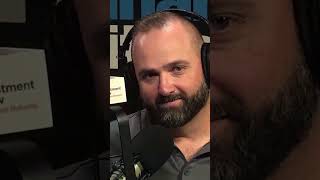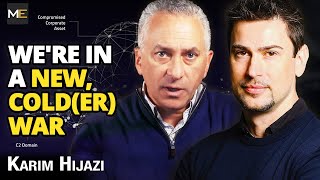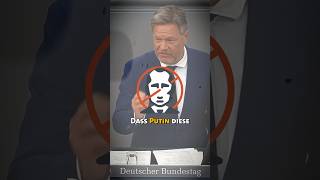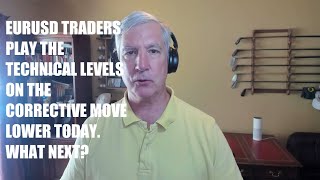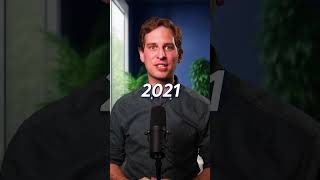Category Archive: 6b.) Mises.org
The CDC’s Budget Is Larger Now Than Under Obama
This is how the budget process in Washington begins. Step one: the president submits his budget to Congress. Step two: Congress puts the president's budget in a drawer somewhere and forgets about it. Step three: Congress passes a budget it likes instead.
Read More »
Read More »
Why Medicare for All Would Require Huge Tax Increases
Medicare for All is listed as the top priority of Democratic presidential candidate Bernie Sanders. He describes it as a single-payer system that is “free at the point of service” as there will be no premiums, deductibles, copays, or surprise bills. It will cover more services (dental, hearing, vision, long-term care, substance abuse treatment, etc.) than what the present Medicare system covers. It will also stop the “pharmaceutical industry from...
Read More »
Read More »
The “Market Monetarists” and NGDP Targeting
[This article is part of the Understanding Money Mechanics series, by Robert P. Murphy. The series will be published as a book in late 2020.] In addition to the Keynesian perspective (covered in chapter 14), a relatively new challenge to the Austrian framework comes from the “market monetarists” and their endorsement of a central bank policy of “level targeting” of nominal gross domestic product (sometimes abbreviated as NGDPLT1).
Read More »
Read More »
If China Is the Problem, Can’t We At Least Have Free Trade with Everyone Else?
It remains unclear how much the stock market implosion of recent days will affect the larger economy. As David Stockman has noted often, the Wall Street economy is not synonymous with the Main Street economy, contrary to what the advocates of rampant bank bailouts and financialization would have us believe.
Read More »
Read More »
Why Sweden’s Negative Interest Rate Experiment Is a Failure
According to the Financial Times's February 20 article “Why Sweden Ditched Its Negative Rate Experiment,” economists are pondering whether Sweden’s central bank experiment with negative interest rate was a success. Sweden’s Riksbank, the world’s oldest central bank, introduced negative interest rates in early 2015.
Read More »
Read More »
What Comes After Quantitative Easing?
André de Godoy: Ludwig von Mises mentions in his books that credit expansion is one of the causes of the inflation beyond the monetary expansion. What are the similarities and differences between those two phenomena?
Read More »
Read More »
What Would Murray Say About the Coronavirus?
Murray Rothbard died in January 1995, long before this year’s coronavirus scare. But the principles this great thinker taught us can help us answer questions about the coronavirus outbreak which trouble many of us. Would the US government be justified in imposing massive involuntary quarantines in order to slow down the spread of disease? What about vaccines?
Read More »
Read More »
The US Constitution Needs an Expiration Date
A unique feature of the Swiss Federal Constitution is the fact that the central government's power to impose direct taxes on citizens expires every decade or so. In fact, the current taxing authority expires at the end of 2020. Fortunately for the Swiss republic's central government, voters approved an extension (the "New Financial Regime 2021") for another fifteen years in a March 2018 election.
Read More »
Read More »
“Heritage” Designation of Old Buildings Is Both Wasteful and Arbitrary
An old red barn in London, Ontario was recently given heritage protection by City Council. Two days later, after dark, the barn was demolished. Owner John McLeod, citing legal advice, wouldn’t comment when asked if he’d demolished the barn but said, “I’m delighted that it’s down.”
Read More »
Read More »
Governments Are Using the Coronavirus to Distract From Their Own Failures
The Johns Hopkins University Coronavirus Global Cases Monitor shows that the mortality rate of the epidemic is very low. At the writing of this article,1 there have been 92,818 cases, 3,195 deaths, and 48,201 recoveries. It is normal for the media to focus on the first two figures, but I think that it is important to remember the last one. The recovered figure is more than ten times the deceased one.
Read More »
Read More »
Christine Lagarde’s New Vision for the ECB
On December 12, Christine Lagarde introduced her goals and vision in her first rate-setting meeting as the new president of the European Central Bank (ECB). On the actual policy front, there were no surprises. She remained committed to the path set by her predecessor, Mario Draghi, and kept the current monetary stimulus unchanged.
Read More »
Read More »
The Fed Slashes Rates as Powell Declares Economy “Strong”
The Federal Reserve this morning slashed the target federal funds rate by 0.5 percent today. According to CNBC: The Federal Reserve moved to an enact an emergency interest rate cut after officials saw the coronavirus having a material impact on the economic outlook, Chairman Jerome Powell said Tuesday.
Read More »
Read More »
Mises: To Adopt Keynesian Terminology Is to Legitimize It
Some years ago, there was published a book in the German language with the title L.T.I. These three letters stood for three Latin words, lingua Tertii Imperii, the language of the Third Reich. And the author, a former professor of Romance languages at one of the German universities, described in this book his adventures during the Nazi regime.
Read More »
Read More »
The US’s “Free Trade” Isn’t Very Free
The false notion that the US has eliminated virtually all of its barriers to foreign imports has been repeated more and more in recent years. The claim is made both by advocates for free trade and by critics of free trade. For instance, Patrick Buchanan has claimed only American elites "are beneficiaries to free trade" while implying the US either has free trade, or something close to it.
Read More »
Read More »
The EU’s Latest Screw-You to the UK Shows a Big Problem with Trade Agreements
All too often, discussion over trade deals focuses almost solely on tariffs. It's true that tariffs—i.e., taxes—are always a significant barrier to free exchange at all levels, but there are also plenty of ways to block or lessen trade that are not primarily tariff-based. Recent conflicts over the pending negotiations between the UK and the EU are a reminder of this.
Read More »
Read More »
Central Banking since the 2008 Financial Crisis
[This article is part of the Understanding Money Mechanics series, by Robert P. Murphy. The series will be published as a book in late 2020.] In chapter 5 we reviewed the textbook analysis of how a central bank buys government debt in “open market operations” to add reserves to the banking system, with which commercial banks can then advance loans to their own customers.
Read More »
Read More »
Mises and the “New Economics”
[This article is excerpted from a talk delivered on February 22, 2020 at the Austrian Student Scholars Conference, hosted by Grove City College in Pennsylvania.] I. Introduction What a wonderful gathering of students today, on this impressive and beautiful campus. We can see why Hans Sennholz loved this place, and why Drs. Herbener and Ritenour so enjoy living and teaching here.
Read More »
Read More »
The WTO Is Both Irrelevant and Unnecessary
The World Trade Organization (WTO) is in a state of crisis. When it comes to trade negotiations among large states like the US, India, and China, the WTO has been shown to be an organization that is largely irrelevant.
Read More »
Read More »
Tax Burdens, Per Capita Income, and Simpson’s Paradox
How many times have you heard that higher taxes mean greater social welfare and economic development? The statement is backed up by a touch of popular wisdom: “More taxes, more public services.” Almost incontestable empirical evidence is also cited: with very few exceptions, the richest countries’ tax rates are very high, whereas taxes in poor countries are relatively low.
Read More »
Read More »
Nationalism as National Liberation: Lessons from the End of the Cold War
During the early 1990s, as the world of the old Soviet Bloc was rapidly falling apart, Murray Rothbard saw it all for what it was: a trend of mass decentralization and secession unfolding before the world's eyes. The old Warsaw Pact states of Poland, Hungary, and others won de facto independence for the first time in decades. Other groups began to demand full blown de jure secession as well.
Read More »
Read More »










